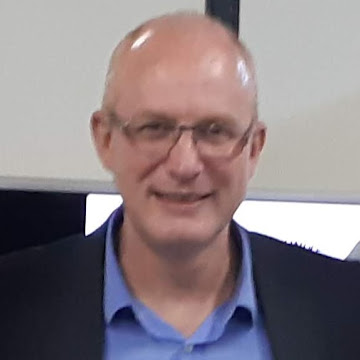- Multicriteria
- Public administration
- operational research
- policing strategies
- MCDA
- MCDM
Basic Information

(Sep 1969–)
Location: Rio de Janeiro, Brazil
1. Introduction
The researcher was born on September 30th, 1969, in Rio de Janeiro, RJ - Brazil. He grew up in the suburb of Madureira, a neighborhood in the northern region of Rio de Janeiro, and studied in public schools until high school. The eldest son of a family of three brothers. In 1987, he started the professionalizing course of Electrotechnics at the Technical School of the Arsenal of Navy of Rio de Janeiro, where he began his professional trajectory. On March 28, 1990, he entered the School for Officer Training for the Military Police of the State of Rio de Janeiro. On December 1st, 1992, he was declared an Officer-Apprentice. On August 25, 1993, he was promoted to second lieutenant. In the Military Police, he was promoted to first lieutenant, captain, major, lieutenant colonel, and colonel on December 25, 2014. As an Officer, he exercised numerous administrative and operational functions within the Military Police but stood out the functions of Budget Director, which he held from June/2009 until August/2013. In this position, the researcher was responsible for the budget execution of the institution regarding personnel administration, costs, and investments. The budget of the Military Police was around 5 billion reais (one billion dollars). In this position, he networked with the main government bodies, such as the Secretary of State for Planning and Management and the Secretary of State for Finance. He then became Director of Finance in 2013, managing the Military Police Health Fund. In this position, he managed funding for investment in health, meeting the needs of two hospitals and five polyclinics. In this function, he carried out the reorganization of the accounts, implementing auditing and control measures. Then, he assumed the position of General Director of Administration and Finance. In this position, he coordinated the finance and budget directorates. 2016 he was appointed Deputy Chief Administrative Officer of the General Staff. In this position, he assumed the role of coordinator of the following directorates: the General Directorate of Personnel, the General Directorate of Administration and Finance, the General Directorate of Teaching and Instruction, the General Directorate of Health, and the General Directorate of Dentistry. This function was challenging, as it required personal detachment due to the complexity and diversity of actions that needed to be implemented. For the Military Police to execute its policing and protection of social activities, a synchronized set of planning, execution and control actions is necessary. In January 2019, I reached the pinnacle of my career as I was appointed to the position of Under-Secretary of State for Military Police. In this position, I began to coordinate both the administrative area of the institution and the operational area. During this period, I participated directly in the demobilization of the former Secretariat of Public Security. Being responsible for the restructuring of the Secretariat of State for Military Police, with the incorporation of the Integrated Center for Command and Control (CICC) the operational activities of the military police. In this period, we had the COVID-19 pandemic, which was an extra challenge because we had to manage the effects on the institution's staff without being able to stop the activities. In addition, the Federal Supreme Court, the highest level of judicial power in Brazil, had prohibited operational activities in "favela" areas, which are strongholds of drug trafficking factions. With this, we felt the great challenge and risk taken to minimize crime rates in Rio de Janeiro. On 27 August 2021, I ended my activities as a military police officer.
2. Academic Achievements
In parallel to my public security activities, I took the following academic courses that supported my entire professional activity: In 1996, I concluded the bachelor's degree course in business administration at Faculdades Reunidas Professor Nuno Lisboa; in 1987, the postgraduate course in Human Resources Administration; in 2000 I concluded the systems analysis course at Estácio de Sá University; in 2007, I concluded the Master's degree in Public Administration at the Brazilian School of Public and Business Administration - EBAPE (Getulio Vargas Foundation), in this same year I concluded the Higher Police Course and the MBA in public security management at the Getulio Vargas Foundation (FGV). In 2012, due to the functions, I performed in the Budget Directorate, I had the need to complement my education by taking an MBA in Financial Management, Controlling and Auditing, completed at the Getulio Vargas Foundation. Finally, I started in 2016 the PhD in production engineering, with an emphasis on decision support methods, which I conclude in December 2019 at the Universidade Federal Fluminense.
My research is dedicated to problems involving decision support that are related to public management, public security, police strategies, and multicriteria methods or topics related to operational research.
In my personal life, I am married for thirty years to Ms. Monica Araujo Fernandes Basilio, I have two children, Marcio Lucca Fernandes Basilio and Marcio Raphael Fernandes Basilio; I am the grandfather of Agatha Talita. I am a Christian, active as a minister of the word of God in the church in Niteroi. We participate actively in the preaching of the gospel of the kingdom, going to the streets and praying for people in malls, restaurants, and supermarkets, through the project: Can I pray for you?
